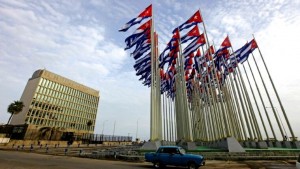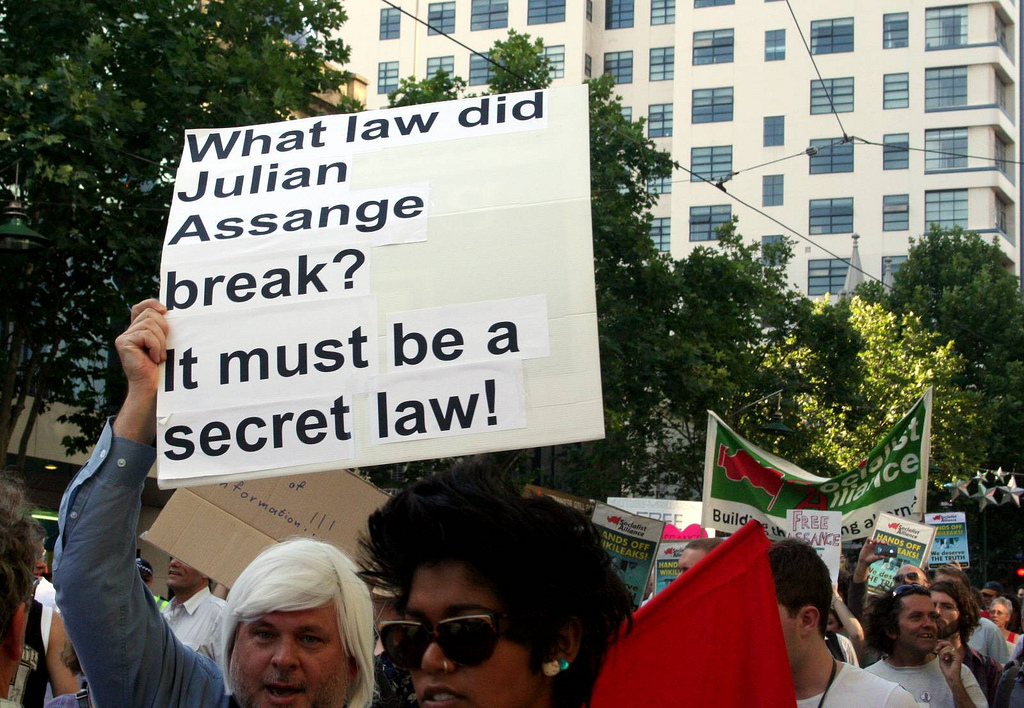EspañolAs US Secretary of State John Kerry prepares to visit Cuba on Friday for the reopening of the embassy in Havana, his office has begun answering questions regarding the new travel policy between the two nations.
On Monday, August 10, the State Department took to their official Spanish-language Twitter account to address concerns from curious US citizens eager to visit the island.
State officials confirmed that current travel restrictions to Cuba are still in force, and individual travelers must fall within the 12 designated categories, ranging from family visits and religious activity to “support for the Cuban people” or professional research.
While US citizens will be required to present their passports to Cuban authorities, Cuban Americans may face a different set of guidelines. “The Cuban government sets its own rules regarding dual citizenship,” State Department officials said in response to a question from @pavel1227.
The State Department says they will resume answering questions regarding policy on Friday, after Secretary Kerry has arrived in Havana.
Gracias por participar con sus preguntas sobre viajes a #Cuba. Recuerden que @JohnKerry viajará a @USEmbCuba el 14 de agosto próximo #USCuba
— USA en Español (@USAenEspanol) August 10, 2015
“Thanks for participating with your questions on traveling to Cuba. Remember, John Kerry will travel to the US embassy in Cuba on August 14.”
Questions to Castro
The PanAm Post asked Cubans living on and off the island what they would ask Raúl Castro if given the opportunity.
[adrotate group=”7″]Berta Soler, leader of dissident group Ladies in White, says she would ask Castro why he hasn’t held fair and transparent elections, why he continues to hold political prisoners, and why he doesn’t respect human rights.
José Daniel Ferrer, general coordinator for the Cuban Patriotic Union (UNPACU), says he would ask the president if he has considered yet what his grandchildren and great-grandchildren will think when the dictatorship is over.
Joisy García, a recent exile in Miami, says he would ask Castro why he hasn’t allowed multiple parties to participate in elections in a country that was founded on the notion of human rights.
Ana Olema, a Cuban artist living in the United States, says she would abstain. “I have nothing to ask or talk about with that man,” she said.
Closer Relations
With regard to the reopening of the US embassy in Havana, State Department deputy spokesman Mark Toner told EFE that “the act of August 14 is not the end of the differences between the two governments, but it does reflect the reality that the Cold War ended long ago and that dialogue is better than the distance.”
Congressmen Ileana Ros-Lehtinen (R-FL) and Mario Díaz-Balart (R-FL) have both harshly criticized the Barack Obama administration’s decision to reopen the embassy.
“It is saddening and disheartening that President Obama and Secretary Kerry have chosen to carry on with this diplomatic charade and reopen a US embassy in Cuba, rewarding the tyrannical Castro regime,” Lehtinen said.
“Secretary Kerry’s visit to formally open the embassy at the very heart of Castro’s brutality should have never happened until we saw substantive reforms in Cuba, such as independent and fair multi-party elections, freedom of the press, and the release of all political prisoners.”

Díaz-Balart accused President Obama of “eagerly acquiescing to dictators while gaining precious little in return.”
“The human-rights record of the Castro regime continues to be the worst in our hemisphere, with more than 3,000 political arrests occurring since President Obama’s December 17, 2014 announcement,” he said. “Pro-democracy leaders and human-rights activists, including the heroic Ladies in White, are routinely beaten by Castro’s thugs.”
On Tuesday, August 11, Senator Marcos Rubio (R-FL) criticized Secretary Kerry for not inviting dissidents: “Cuban dissidents are the legitimate representatives of the Cuban people, and it is they who deserve America’s red carpet treatment, not Castro regime officials,” he said.
While US authorities issued no invitations for opposition members to the official opening on Friday, the US government has invited some dissidents to a more reserved meeting at the ambassador’s home.
Cuban Opposition Unites
Meanwhile, Cuban opposition activists met on Monday, August 10, at the Institute of Artivism Hanna Arendt in Havana to announce the creation of a new coalition for dissidents called the Roundtable for United Democratic Action (MUAD).
According to local news site 14ymedio, the MUAD aims to “work within a new context in which dialogue and diplomacy serve as the key tools for a peaceful, civilized resolution of conflicts.”
 Versión Español
Versión Español













